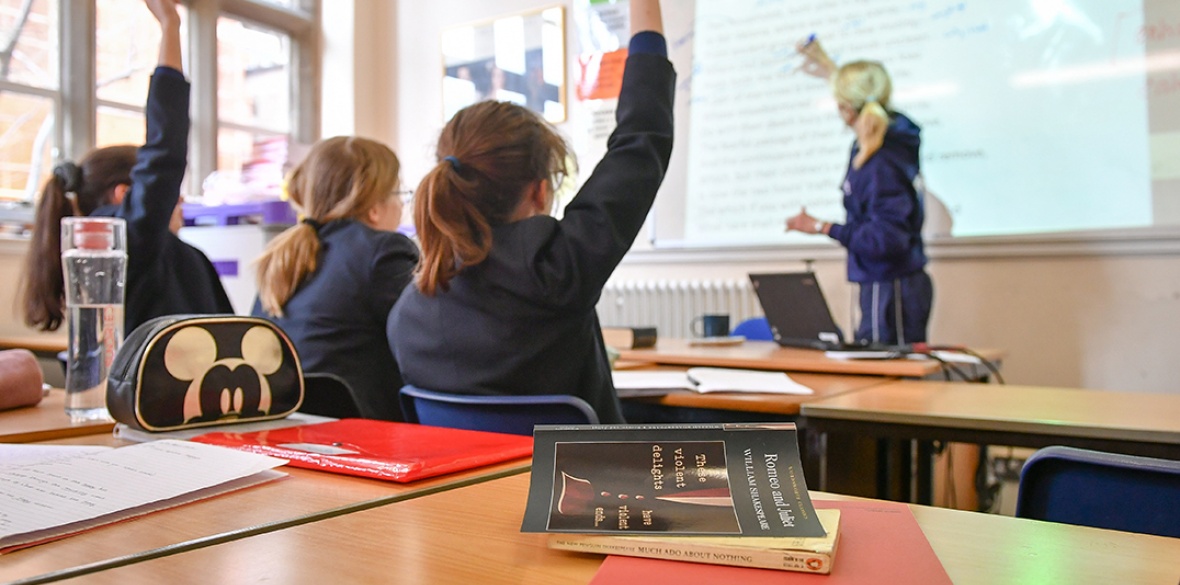This is the last article you can read this month
You can read more article this month
You can read more articles this month
Sorry your limit is up for this month
Reset on:
Please help support the Morning Star by subscribing here
YESTERDAY, the National Education Union became the largest union to win a national ballot under the restrictive thresholds imposed by the 2016 Trade Union Act.
With 90 per cent of teachers in England voting for action on a 53 per cent turnout — more than 121,000 votes — this is the single largest vote for strike action since the legislation was introduced.
In some ways more significant is the fact that this ballot was organised across 24,000 individual workplaces, with an average of 13 members per workplace.
These are difficult conditions to organise in, as shown by sister union NASUWT narrowly missing the same thresholds last week.
This represents the huge anger over pay and, crucially, school funding. Teachers have been awarded 5 per cent when inflation is running at around 12 per cent, after having lost 20 per cent of the value of their pay over 12 years of Conservative-led government.
Significantly, this 5 per cent isn’t fully funded by central government, meaning that the money comes out of school budgets already stretched to breaking point, doing further damage to children’s education.
As one teacher put it recently, paraphrasing the RCN, “children aren’t missing out on education because teachers are striking, teachers are striking because children are missing out on education.”
Teachers, and support staff who also won their ballot in Wales, have also been given confidence by the growing strike wave across the country, with rail workers, postal workers, university workers and nurses among the many groups taking action over pay.
Workplace reps, local branch officers, union staff and activists have worked incredibly hard over the past 14 months to deliver this result, with phone banking, mass meetings and, most importantly, workplace conversations taking place up and down the country.
However, it would be a mistake to think that this result was delivered over the past year alone.
In fact, the results announced yesterday are the product of more than a decade of union-building and renewal, as the NEU and its predecessor unions looked for ways to defend themselves, their members and the education system they work in, from a war on teachers, which has been ruthless and relentless.
This war on teachers has involved the fragmentation and privatisation of the education system, the imposition of curricular and pedagogical changes, underfunding and “liberalisation” of pay and conditions, and direct attacks on the ability of education unions to organise.
However, it has also provided the necessary impetus for renewal. Rather than simply follow a strategy of rapprochement — going along with the changes and seeking the best deal for members within them — or resistance to attacks without seeking to build and renew the union’s capacity to resist, the NEU and its predecessors have carried out a root-and-branch rebuilding of union capacity in education.
There have been plenty of false starts and initiatives which failed to rebuild membership and activism. However, where it has been most successful, such as forcing U-turns on the government over health and safety during Covid, or the School Cuts campaign, which has won significant funding back for education (even if there is still a long way to go) there have been three common principles.
First, a focus on the workplace. Members face the challenges caused by the government’s relentless war on teachers most sharply in the workplace.
Second, while building at the workplace is key, the union has linked this industrial work to political and ideological struggle.
Third, effective renewal has relied on the development of collective leadership, from the workplace up.
Taken together, these three aspects have allowed the NEU to renew and contributed to the ballot result announced this week and the action which will follow.
Gawain Little is co-author, with Ellie Sharpe, Howard Stevenson and David Wilson of Lessons in Organising: What Trade Unionists can Learn from the War on Teachers which is released on March 20 by Pluto Press.










